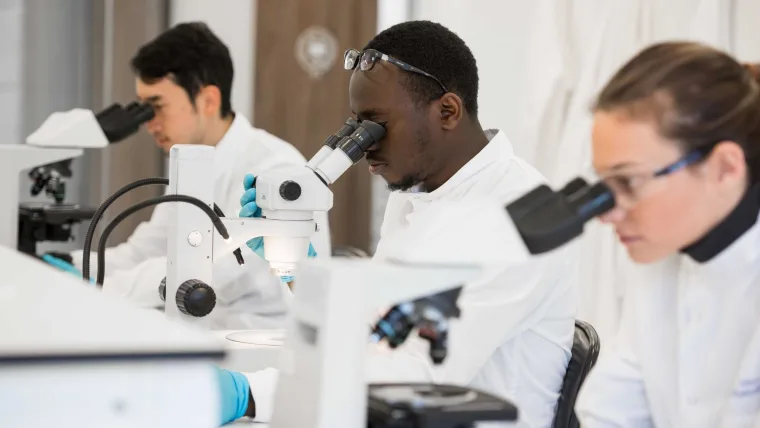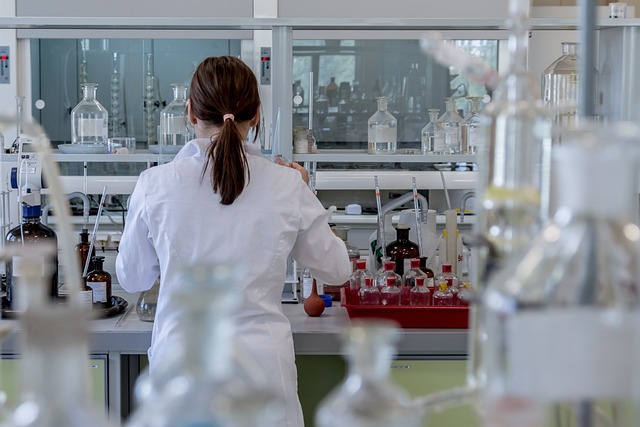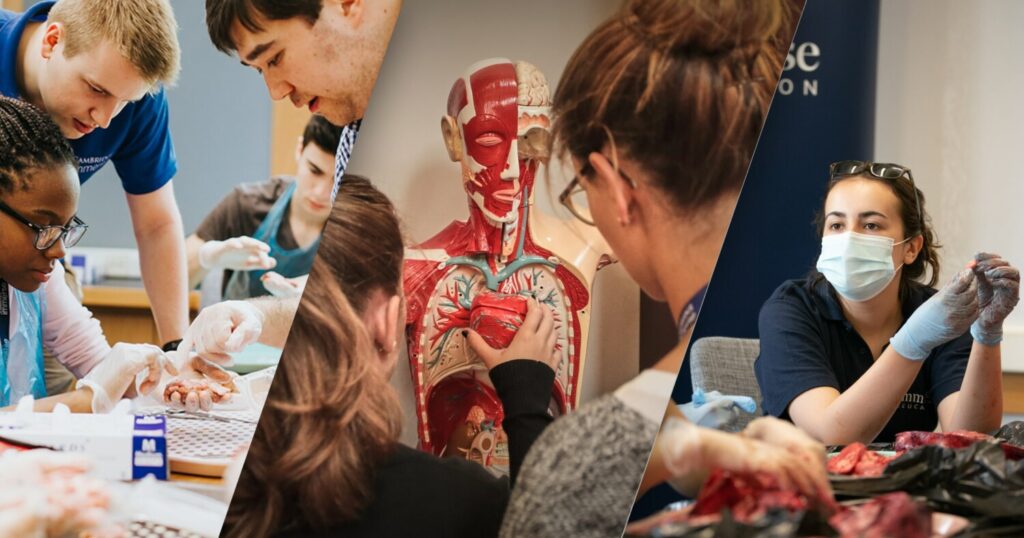For medical students in the UK, there isn’t a single “best” course, as it depends on individual preferences, career goals, and learning styles. However, some of the top medical schools in the UK include the University of Oxford, the University of Cambridge, University College London (UCL), Imperial College London, and the University of Edinburgh. These universities offer highly respected medical programs with different focuses, teaching styles, and resources.
When considering which course is best for you, it’s important to look at factors such as the curriculum, teaching methods, research opportunities, clinical placements, and campus facilities. Additionally, consider factors like location, cost of living, and student support services.
What are the types of medical courses in the UK?

In the UK, there are different types of medical degrees you can choose from. First, there are undergraduate medical degrees. These are for students who want to become doctors right after finishing high school. It takes about five to six years to finish this kind of degree, and during that time, you learn basic medical knowledge and get to work with patients in hospitals.
Then, there are graduate-entry medical degrees. These are for people who already have a bachelor’s degree in something related to medicine. They’re faster, usually taking about four years. In these programs, you learn more advanced medical concepts and start working with patients earlier than in undergraduate programs.
Another option is integrated medical degrees, which combine both undergraduate and postgraduate studies. They last around six to seven years and aim to make learning medicine smoother and faster by blending different stages of education.
Lastly, there are postgraduate medical degrees. These are for people who have already finished their basic medical training. They help you specialize in a specific area of medicine, like surgery or pediatrics, and offer more advanced learning and skills.
How to evaluate medical courses in the UK?
Evaluating medical courses in the UK involves considering several key factors to ensure you choose the right program for your needs and aspirations. Here’s a step-by-step guide to help you:
Accreditation
GMC accreditation signifies that the medical course meets rigorous standards set by the General Medical Council. These standards cover various aspects of medical education, including curriculum design, teaching methods, assessment processes, student support, and clinical placements.
Further, ensuring GMC accreditation ensures that the course meets the criteria necessary for graduates to practice medicine in the UK.
Curriculum
A well-designed curriculum should provide a structured and comprehensive framework for medical education.
It typically includes modules covering foundational sciences such as anatomy, physiology, biochemistry, and pathology, as well as clinical rotations in various specialties.
Such as internal medicine, surgery, pediatrics, obstetrics and gynecology, psychiatry, and others.
The curriculum should also integrate professional development, ethics, and communication skills training to prepare students for the responsibilities of medical practice.
Teaching Methods
Effective teaching methods engage students actively in the learning process and cater to diverse learning styles.
Lectures provide foundational knowledge, while small-group tutorials, problem-based learning, case discussions, and interactive workshops encourage critical thinking, problem-solving, and application of knowledge.
Clinical skills training, simulations, and hands-on experiences complement theoretical learning and help students develop practical competencies.
Clinical Experience
Clinical placements allow students to gain firsthand experience in healthcare settings under the supervision of experienced clinicians.
These placements typically occur in hospitals, clinics, community health centers, and other healthcare facilities. It’s important to think about the kinds of experiences you’ll have during the course.
You want to make sure you get to see lots of different medical situations, work with different types of patients, and be in different places like hospitals or clinics.
This helps you learn about all kinds of health issues and get ready for being a doctor.
Faculty and Facilities
Knowledgeable and experienced faculty members are instrumental in delivering high-quality medical education. They should possess expertise in their respective fields, engage students effectively, and provide mentorship and support throughout the course.
Modern facilities and resources, including well-equipped laboratories, libraries with access to medical literature and research databases, and simulation centers with advanced medical simulation technology, enhance the learning experience and allow students to develop practical skills in a safe environment.
Student Support Services
Medical school can be demanding, so access to support services is essential for student well-being and success. Academic support services, including tutoring, study skills workshops, and academic advising, help students excel academically.
Counseling services provide emotional and psychological support, while career guidance and mentorship programs assist students in navigating career pathways and making informed decisions about their future in medicine.
Student Satisfaction and Outcomes
Student satisfaction rates and outcomes such as exam pass rates, residency placement rates, and career progression are indicators of the effectiveness of the course in preparing students for their professional careers.
Positive feedback from current students and alumni reflects the quality of the educational experience and the impact of the course on graduates’ professional development and success.
Location and Lifestyle
Where the medical school is can affect lots of things in your life as a student.
It can change how much you need to spend on living expenses, where you can live, how easy it is to get around, what fun things you can do, and how happy you feel.
In addition, thinking about these things helps make sure you pick a place that matches what you like and makes your time at school enjoyable.
Entry Requirements
Understanding the entry requirements for the course is crucial for successful application.
These requirements typically include academic qualifications (such as A-levels or equivalent), admissions tests (such as the UK Clinical Aptitude Test – UKCAT or the Biomedical Admissions Test – BMAT), personal statements, interviews, and sometimes additional assessments.
Meeting the entry requirements and preparing adequately for the application process increase your chances of securing admission to your desired program.
Reputation and Rankings
Rankings show how good a school is compared to others, but reputation is about more than just that.
It includes things like how much research the school does, how good the teachers are, how nice the hospitals are, if students are happy, and what past students have achieved.
Reputation and rankings can affect what people think about a medical school, but you should also think about other things when deciding if a course is right for you.
Which are the top medical courses in the UK?

In the UK, several medical courses are highly regarded, offered at prestigious institutions. Here are some of the top medical courses:
- Doctor Training (MBBS/MBChB): This is the main degree to become a doctor in the UK. It takes about 5-6 years to finish. You’ll learn theory, do practical work, and work with real patients.
- Body Science (Biomedical Sciences): This is about studying how our bodies work and why they get sick. It’s a good start if you want to be a doctor, scientist, or work in healthcare.
- Nurse Training (Nursing): This helps you become a nurse. Nurses take care of sick people in hospitals or other places. You can choose to focus on helping adults, kids, or people with special needs.
- Medicine Store (Pharmacy): Here, you learn how to give people the right medicine. You’ll know what medicines to give and how to use them safely.
- Tooth Doctor (Dentistry): Dentistry is about fixing teeth problems and keeping them healthy. Dentists help people of all ages take care of their teeth.
- Body Movement Help (Physiotherapy): This is about helping people move better after they get hurt. You’ll learn exercises and other ways to make their bodies stronger.
- Animal Doctor (Veterinary Medicine): This is for people who want to take care of sick animals. You’ll learn how to help all kinds of animals feel better, like pets or animals on farms.
FAQ’s
What course to take to become a doctor in the UK?
To become a doctor in the UK, you need to study a course called MBBS or MBChB.
Can I work in the UK after MBBS?
Yes, but you’ll need more training after MBBS to work as a doctor in the UK.
Which course is best after MBBS?
After MBBS, you can choose different courses like Internal Medicine, Surgery, Pediatrics, and others based on what you like.
How much do doctors earn after MBBS in the UK?
Doctors’ salaries in the UK vary, but junior doctors usually earn between £28,000 to £37,000 per year when they start.
Which country is best after MBBS?
It depends on what you want, but countries like the United States, Canada, Australia, and the UK offer good opportunities for doctors.
Final Words
It’s important to choose a medical school in the UK that’s the right fit for you. Consider things like what you’ll learn, how you’ll learn it, and where you’ll study. Look at factors like location, cost, and support services too. Remember, the best medical school for you is the one that helps you achieve your goals and feels like a good fit.
